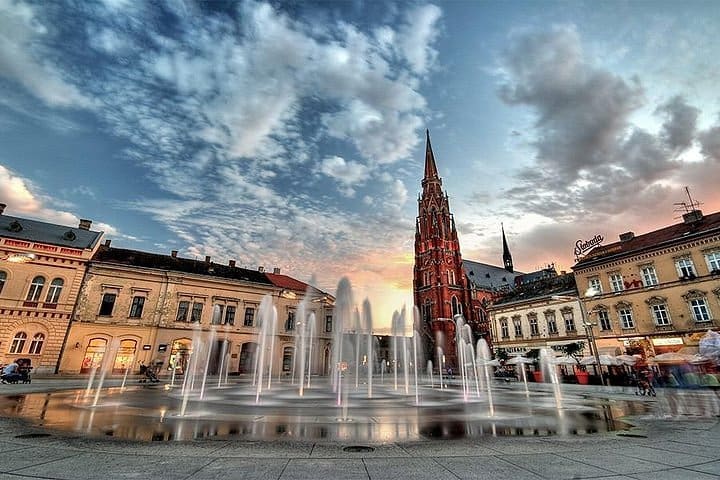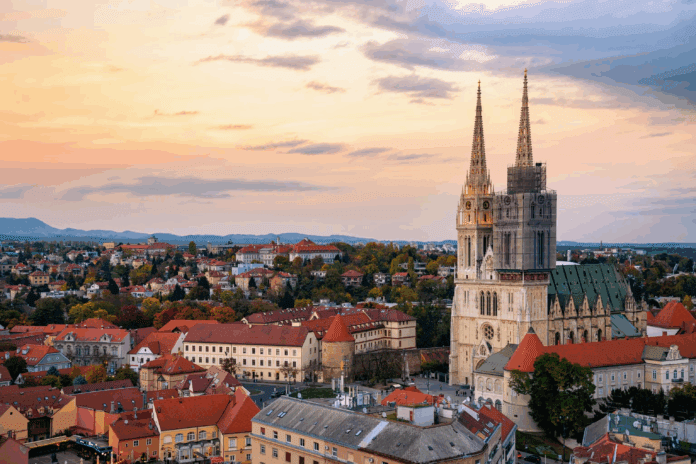Croatia proudly marked the 30th anniversary of Operation Storm with renewed optimism for its future. Celebrated by all sides of the political spectrum, this historic military victory reflects a unified national vision. As living standards rise and the diaspora begins to return, Croatia moves closer to fulfilling the dreams of its veterans. Discover the country’s evolving goals and the path ahead.
Croats proudly celebrate 30th anniversary of Operation Storm
Croats have proudly celebrated the 30th anniversary of Operation Storm with a more optimistic outlook towards their own future than in some earlier periods.
This magnificent victory is celebrated by both the right and the left. There is no relevant political option in Croatia that questions this. “Operation Storm is as pure as a tear,” recently stated the leader of the SDP, the main opposition party.
A country resembling what veterans fought for
Today’s Croatia is gradually taking the shape of the country that Croatian defenders fought and died for. It is not yet entirely as it should be, but the path forward is known. All that is needed are forces with both the political will and the skill to carry it out.

First goal: Raising the standard of living
The first goal is raising the standard of living. Recently, both average wages and the purchasing power of citizens have significantly increased. Croatia has left the bottom ranks of these tables among European Union countries. There are now six or seven countries behind it, and in terms of wages, Croatia is currently above Portugal, an old EU member state.
Still, this is not yet enough to satisfy Croats. Everyone is waiting for this growth to continue, so that Croatia can draw closer to the countries to which many of its people have emigrated, and from which they might begin returning. There are certain parameters taken from the example of Poland.
The Polish example and its lessons
That country is now experiencing an economic boom, though hundreds of thousands – some say millions – of people once left it. When their standard of living recently reached 82 percent of the EU average, Poles began to return. And almost en masse.
Croatia is now close to achieving that goal, and it is expected that the currently numerous cases of Croats returning from abroad to their homeland will, in the coming years, turn into a more mass-scale trend.
Second goal: Return of the diaspora
And this is the second goal of this and all future Croatian governments: the return of Croats from the diaspora. Not just those who left themselves, but also second- or third-generation descendants, those who were born abroad but wish to move to Croatia, to Europe.
They want to go from Zagreb for a morning coffee by the sea, for day trips to Venice or Vienna. They like the Croatian lifestyle, they appreciate the safety it provides for families, especially for children. They would return not only out of patriotism but also due to the quality of life that would attract them.
The Jabil example in Osijek
In this context, the example of employment at the American factory Jabil in Osijek is illustrative.
They produce highly sophisticated products – medical prosthetic parts, microchips, motherboards for the automotive industry… Among their employees – and they are planning around 4,500 – around 70 percent are returnees from abroad. Many more applied, but there was no room at this stage.

Third goal: Supporting Croats in Bosnia and Herzegovina
The third national goal concerns Croats in Bosnia and Herzegovina. On this, too, there is a consensus in Croatian politics, although there are differences regarding methods. The aim is to strengthen the position of Croats as a constituent people in that country and to encourage the return of Croats who have emigrated from it.
Bosnia and Herzegovina lies in Croatia’s “soft underbelly” and no Croatian policy can afford to merely observe that country from the sidelines – yet at the same time, it must not interfere in its internal affairs. Zagreb is now supporting options that push Bosnia and Herzegovina towards the EU, towards the West. This is good for Croatia, but also for Croats in Bosnia and Herzegovina.
A long-term process for successive governments
Of course, these three goals involve processes. They will take time, and it is the duty of this and every future Croatian government to contribute to their realisation. The future should not be feared.

